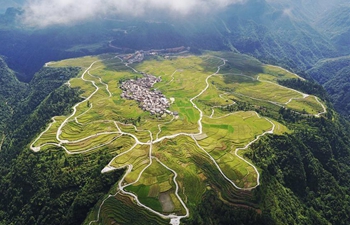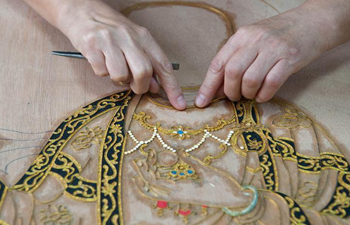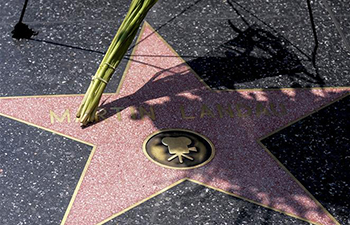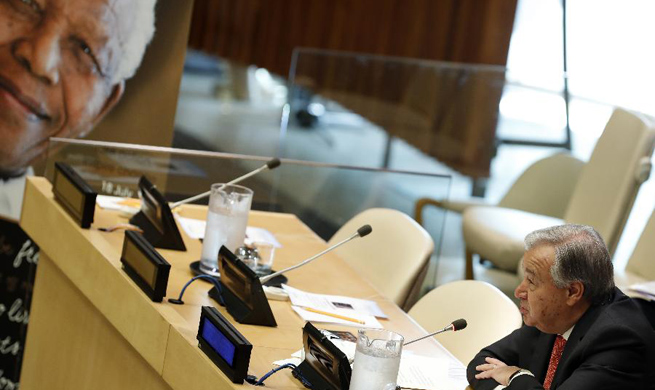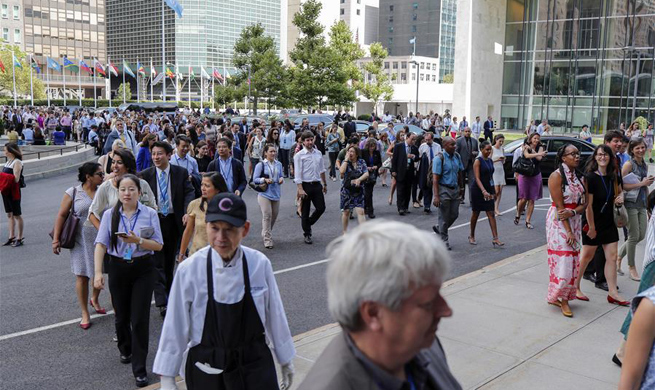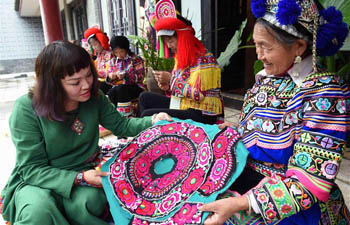DHAKA, July 18 (Xinhua) -- Infrastructure projects have significant potential to increase the economic empowerment of women in Bangladesh and contribute to the government's efforts to promote gender equality, reveals an evaluation of the Asian Development Bank (ADB).
The Manila-based lender's evaluation makes clear, however, that building new roads, expanding electricity grids and improving water supply services, the mainstay of ADB's support for Bangladesh over the past decade, do not automatically lead to better livelihood opportunities for women or other gender-equitable results.
"Women must be given a seat at the table in infrastructure-building," Marvin-Taylor Dormond, director general of Independent Evaluation at ADB, said in a statement on Tuesday.
"Women need to be part of the decision-making in all phases of infrastructure projects, and giving them a voice in such crucial driver of economic growth will go a long way toward reducing Bangladesh's still high levels of gender inequality."
ADB's Independent Evaluation Department assessed ADB's support for gender and development in its Bangladeshi operations during 2005-2015. The period saw a marked increase in infrastructure projects in ADB's 9- billion-U.S. dollar portfolio for the country, of which infrastructure accounted for 5 billion U.S. dollars, it said.
Both the Bangladeshi government, in its Seventh Five-Year Plan (2012-2016), and ADB are committed to promoting gender equality, it added.
The evaluation found that this collaboration and ADB's "top-down and bottom-up" approach to strengthening gender equality by working with government ministries, local governments, and communities was effective.
The evaluation also found that significant strides have been made in reducing gender disparities in education and health in Bangladesh, where the status of women has generally improved over the last decade.
But women continue to face high levels of inequality in livelihood opportunities and access to economic assets, it said.
In rural Bangladesh, according to the ADB, women own only 8 percent of productive assets, according to the latest available estimate. Women's participation in the workforce, though improving thanks to the garment industry, labor migration and microfinance programs, remains low, at an estimated 34 percent.
The evaluation raises the concern that these factors will heighten the risk of women to the effects of vulnerability to shocks.
"Because of high levels of inequality in livelihood opportunities and economic assets, women have far less resilience than men to various shocks, such as natural disasters, climate risks, and economic downturns," said the evaluation report's main author, Hyun Son.
An important conclusion from the evaluation is that there was little focus in operations to get men to support gender equality. Gender issues are not just women's issues.
Asian Development Bank's Independent Evaluation, reporting to the Board of Directors through the Development Effectiveness Committee, contributes to development effectiveness by providing feedback on ADB's policies, strategies, operations, and special concerns in Asia and the Pacific.





